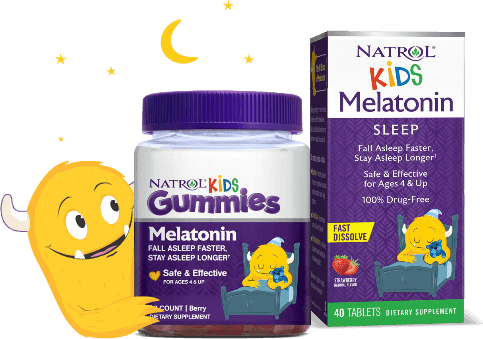Can A Child Overdose On Melatonin Gummies?

What are melatonin gummies?
Melatonin gummies are sweet, chewy candies infused with melatonin. They are usually chewable and taste good and because they are easy to swallow, children love them. Melatonin Gummies come in different shapes and sizes, some are non-GMO and vegetarian which makes them free of artificial flavors, sweeteners, colors, and preservatives. Most are pectin-based, so they are less likely to stick to your teeth and to the bottle than standard gelatin gummies.
Melatonin essentially regulates your sleep cycle. For the most part, many people produce enough melatonin to sleep well at night. For those who don’t, a melatonin supplement might be the answer. There aren’t any hard or fast rules with regard to how much melatonin to take, but typically, an adult only need about 0.5 (milligrams) mg to 3 mg per night.
Melatonin is popular because it’s non-habit-forming and there’s a low risk of sleep inertia (waking up feeling groggy or hungover). That’s not to say that melatonin doesn’t have its faults.
Can A Child Overdose On Melatonin Gummies?
Yes, a child can overdose on melatonin. The risks of a melatonin overdose are more severe for children, so should a child experience some of the more intense side effects of too much melatonin, medical attention should be sought immediately.
What happens if a child takes too many melatonin gummies?
There are several things that can happen when a child takes too much melatonin, a dose that might trigger side effects in one person may have little effect on someone else. Side effects that can occur include headache, nausea, dizziness, and daytime fatigue. Young children should avoid melatonin unless otherwise directed by a doctor. Doses between 1 and 5 milligrams (mg) may cause seizures or other complications for young children.
The American Association of Poison Control Centers reports that calls about melatonin have skyrocketed 114% nationwide since 2012, with 79% of the 24,000 calls in 2016 involving children. Parents often call poison control after their children have taken it unintentionally or taken too much. That can lead to nausea, diarrhea, headaches, changes in mood, lasting sleepiness the next day, and bedwetting, experts say. Experts are also not sure if using melatonin would harm children.
What Are the Side Effects of Melatonin?
Melatonin is not a normal medication, but you can experience side effects if you’re sensitive to the supplement.
The upside is that the side effects of melatonin are usually mild and subside as your child’s body adjusts.
Side effects vary, but include:
• Irritability
• Drowsiness
• Nausea
• Diarrhea
• Headache
Melatonin has also been known to exacerbate depressive symptoms and should be used with caution in those suffering from depression.
Experiencing side effects doesn’t always mean that your child should stop taking melatonin. The decision to stop will depend on the severity of your side effects, and whether they improve or continue.
Of course, it’s all about tolerance, too. If you take melatonin and repeatedly experience cramps or diarrhea the next day, you might be sensitive and need to consider other options for better sleep, perhaps chamomile tea or lavender oil.
To reduce the likelihood of side effects, always start with a low dose of melatonin. Only increase your dose as needed.
Many brands of synthetic melatonin contain 5 to 10 milligrams (mg) per serving, which is more than what people often need to regulate their sleep cycle.
Some adults only need a little melatonin, while others need more. Children can typically get by with a lesser amount, too. You should discuss this with your doctor first to ensure your child’s body can handle a larger dosage.
Also, consult with your doctor if your child takes any prescription medication. This includes drugs for depression and diabetes, as well as anticoagulation medication, immunosuppressants, and corticosteroids.
Melatonin can also cause an inflammatory response in the body, so the supplement isn’t an ideal choice for people who have certain autoimmune diseases.
Melatonin Safety Information
While short-term use (a few months or less) of melatonin is thought to be safe in healthy adults, it can boost blood sugar, so it is not recommended for people with diabetes. Taking too much can also lead to bad dreams and grogginess the next day and it can make many drugs less effective, including high blood pressure medications, seizure medications, and birth control pills.
Because dietary supplements are not regulated as much as prescription drugs, quality can vary wildly from bottle to bottle. One recent study found that 71% of melatonin supplements surveyed did not contain exactly what they said on the label. Some had more than four times as much melatonin as indicated, and 26% contained the powerful neurotransmitter serotonin, a chemical found in many antidepressant medications.





